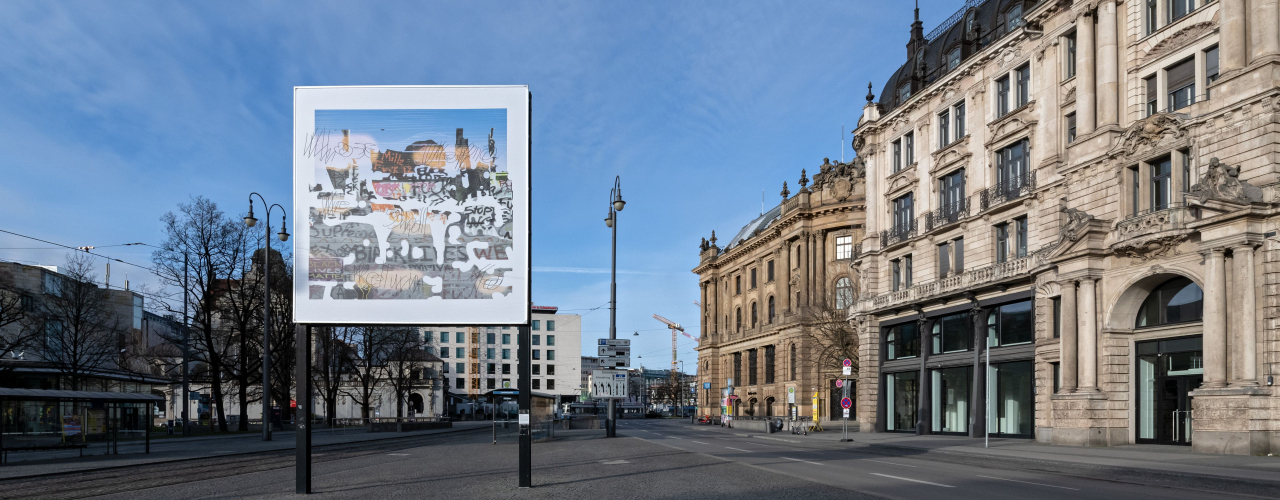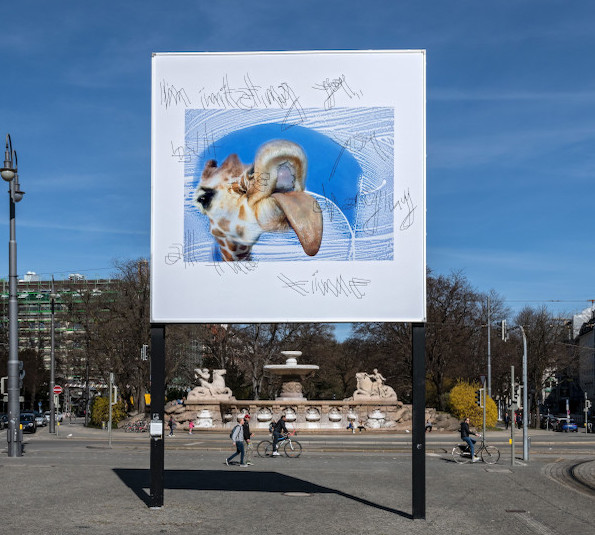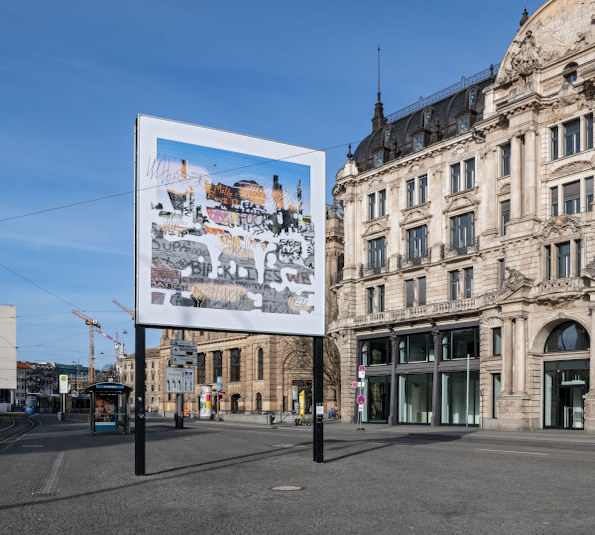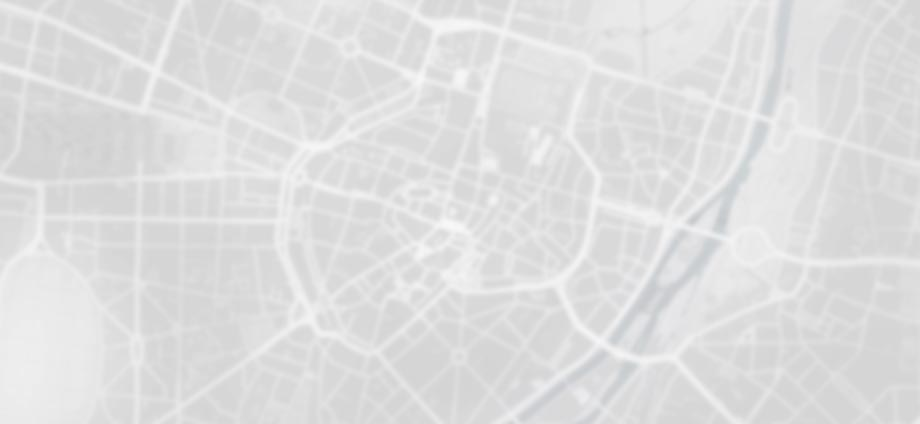The two works by Flaka Haliti for the Billboard probe social and political prerogatives of interpretation. The artist considers the nature of societies as places where different and in part contradictory ideas, values and truths are negotiated. Her exploration of these processes involves the question of how they have related to the cultural political changes of our current utopias and normalities since 1989.
On one side of the Billboard, the artist floats the question, “Whose utopia we shall return to” – whose and which version of utopia do we want to invoke? The phrase appears on a collage of different socio-political and activist movements, showing their symbols and demands. For one thing, this includes the question of which ideas, perspectives and visions have sway in our society. Who and what is heard, seen and represented – or not? At the same time, the collage suggests that we approach the concept of utopia from various angles, that we enter it as a space of possibility for diverse and multiple truths outside the purview of the dominant Western idea of politics and society.
The second side of the Billboard likewise addresses the social and economic structures imposed by dominant Western industrial countries, stating: “I’m imitating you, but you are changing all the time”. This alludes to the developments of post-1989 Central and Eastern Europe states, which, according to the artist, strive for what is supposedly the ideal, but which keeps eluding them. Democracy and capitalism are understood as both the basic criteria and guarantors of a Western standard of living, or at least they are assumed to be such. Flaka Haliti plays ironically with the image of a giraffe as a symbol of reaching for this silvery horizon. She describes a road to modernization that is paved with imitation. And the integration, which these states hope to achieve, not infrequently devolves into assimilation. The work implies that these acts of imitation are fraught with a potential loss of identity and with feelings of inadequacy in the face of the arrogance of the Western European neighbours and their seemingly constant transformation: “I’m imitating you, but you are changing all the time”.
Flaka Haliti, born in 1982 in Pristina, Kosovo, lives and works in Munich.



